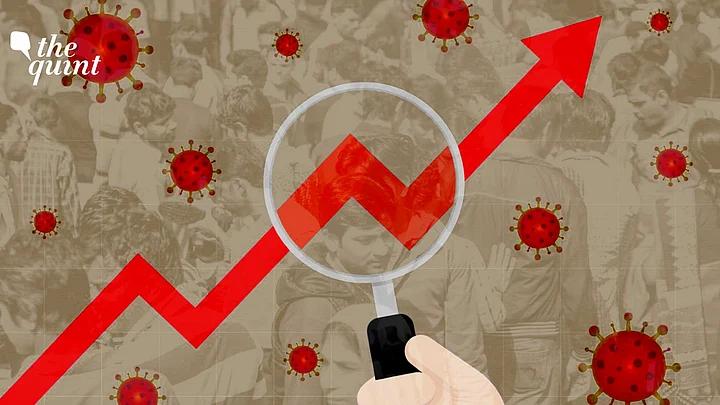Amid concerns over the spread of the highly-transmissible Omicron variant, a study conducted by researchers from Indian Institute of Technology, Kanpur suggests that a third COVID-19 wave in India might see its peak on 3 February.
"Assuming that a third wave of COVID-19 may hit the country, and following the trends happening around the world, using Gaussian Mixture model to fit the COVID-19 data and make predictions, this project report forecasts India’s third wave of COVID-19 to start around mid December 2021 and the cases to peak in the beginning of February 2022."The Study
Study Collected Data From Previous Waves, Other Countries
The study has been conducted utilizing the data from different countries that are already facing an Omicron surge, and modelling of their daily cases data to predicting the impact and timeline for the third wave in India.
Data collected from the the US, UK, Germany, France, South Africa, and others have been used in the study, which uses a 'Gaussian mixture model' to estimate the parameters.
Data collected from the first and second waves of COVID-19 in India was also considered to make the predictions. This includes the number of daily confirmed total cases, new cases, total and new deaths attributed to COVID-19, excess mortality as a percentage difference from previous years, as well as hospital data.
Exact Number of Cases at Peak Could Not Be Determined: Study
The researchers observed that the exact number of cases at the peak cannot be estimated accurately by the study, as it did not consider the vaccination data of the population.
"While the timeline can be estimated with some confidence using this approach, the exact peak number of cases (weight factor) cannot be estimated accurately as it involves the vaccination data of the population."The Study
The study, which is yet to be peer-reviewed, was published on the pre-print repository MedxRiv on Tuesday, 21 December. The research has been conducted by Sabara Parshad Rajeshbhai, Subhra Sankar Dhar, and Shalabh, all belonging to the Department of Mathematics and Statistics at IIT Kanpur.
Meanwhile, India on Friday recorded 415 fresh Omicron cases.
